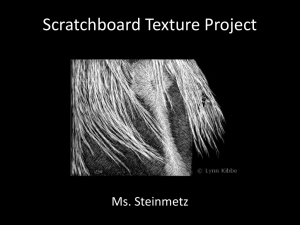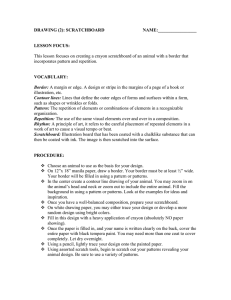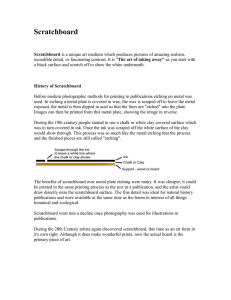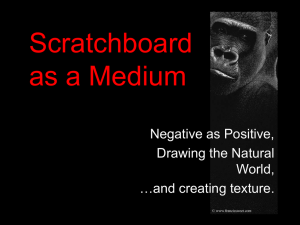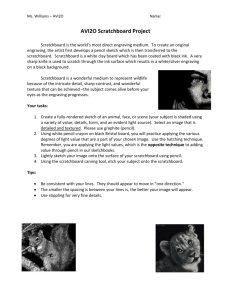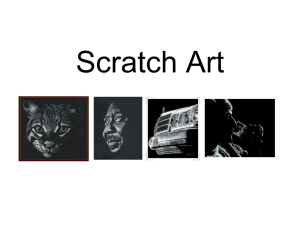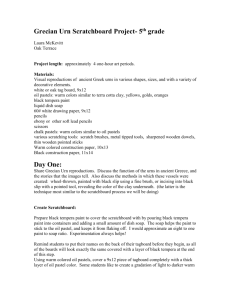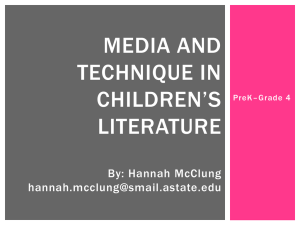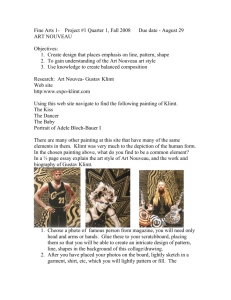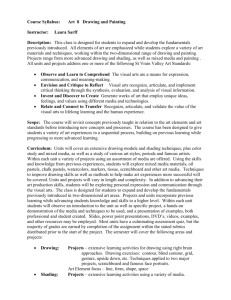Scratchboard
advertisement
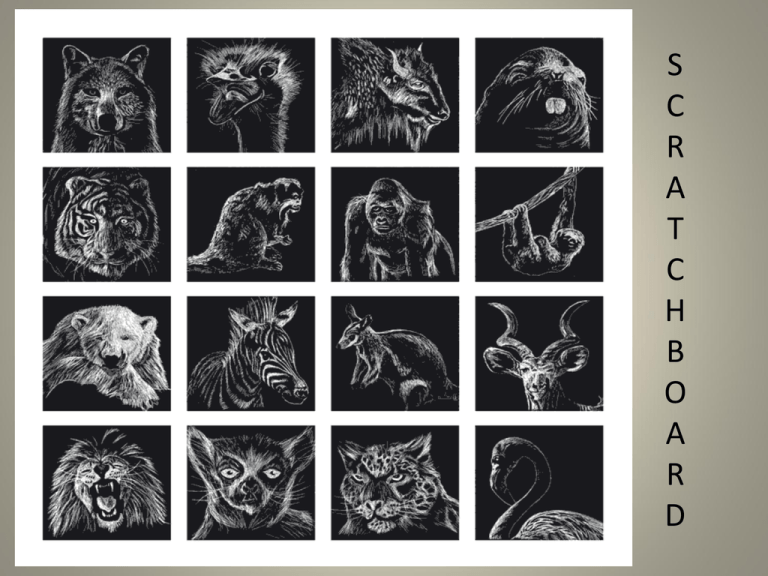
S C R A T C H B O A R D http://vimeo.com/19991501 • Scratchboard or scraperboard is a technique where drawings are created using sharp knives and tools for etching into a thin layer of white China clay that is coated with black India ink. Scratchboard can also be made with several layers of multi-colored clay, so the pressure exerted on the instrument used determines the color that is revealed. Scratchboard can be used to yield highly detailed, precise and even textured artwork. History • Modern scratchboard originated in the 19th century in Britain and France. As printing methods developed, scratchboard became a popular medium for reproduction because it replaced wood, metal and linoleum engraving. It allowed for a fine line appearance that could be photographically reduced for reproduction without losing quality. It was most effective and expeditious for use in single-color book and newspaper printing. From the 1930's to 1950's, it was one of the preferred techniques for medical, scientific and product illustration. During that time period, Virgil Finlay made very detailed illustrations, often combining scratchboard and pen & ink techniques, producing astoundingly detailed artworks. In more recent years, it has made a comeback as an appealing medium for editorial illustrators of magazines, ads and graphic novels. Scott McKowen Steps to Achieve an Awesome Scratchboard Drawing • First choose a subject matter, i.e. an animal • Sketch out different views of the animal, i.e. frontal view, side view, foreshortening, birds eye view, etc…It's important to have the picture broken down to only the most essential lines. • Then transfer it to the scratchboard using graphite paper. • Then using an Xacto knife start scrapping off the black ink to create an image • Start with light scratches than go over the ones that you want to enhance and stand out more. Use similar styles that one would use as if drawing in charcoal or pencil, such as cross hatching, fine lines, contour lines etc. • Pay close attention to direction, example is fur or feathers, they must be going in the proper direction if the finished product is to look realistic. Creating 5 Values: • Black: do not scratch away • White: scratch away completely. • Dark Gray: scratch lines that are far from one another. • Medium Gray: scratch lines that are scratched away are near one another. • Light Gray: scratch lines that are close to one another. Questions to think about • What variety of lines and shapes are in your picture? • Where is the positive and negative space on your scratchboard? • How are you going to incorporate value in your scratchboard image? • Is your composition balanced? Resources • http://www.aphelionart.com/scratchwildlife.html • http://smorrisonart.redbubble.com/works • http://www.martienarichter.com/Technique.html • http://www.greggmurray.com/ • http://www.marlenaagency.com/scott/scott.html
